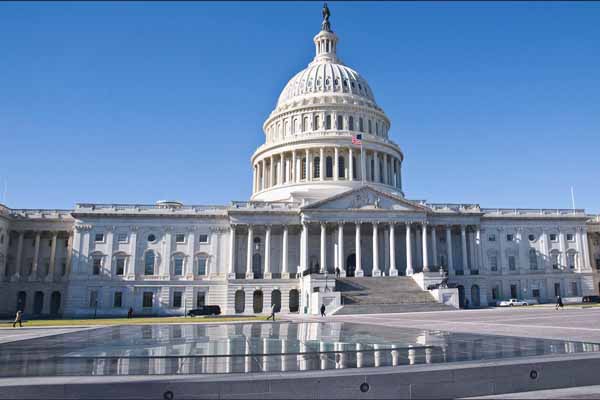
Thanks to incessant lobbying from physicians, hospitals, organized medicine, and the Physicians Advocacy Institute, a key congressional committee today made significant revisions in a bill to reduce the strain of surprise billing on patients.
“This certainly sounds like an improvement,” said Texas Medical Association President David Fleeger, MD, “but the devil will be in the details.”
TMA has been fighting hard to ensure that HR 3630, known as the No Surprises Act – along with a similar Senate bill – takes the patient out of the middle of out-of-network payment disputes but doesn’t give health insurance companies complete control over what they pay out-of-network physicians.
Unfortunately, a House Committee on Energy and Commerce subcommittee last week advanced a version of the bill that would have allowed private insurers to force discounted rates on physicians, hospitals, and other health care providers, which ultimately would hurt patients’ access to care.
Among the improvements the full committee made today is an independent arbitration process for surprise medical bills of $1,250 or more. As TMA and others requested, the arbitrator will be able to review factors such as the complexity of the case and the experience of the physician in determining the appropriate payment.
For weeks, TMA and others have fought back against insurance industry-backed provisions in the draft bill.
“We fully support the central goal of the No Surprises Act to protect patients from surprise medical bills when they unknowingly receive services from out-of-network providers in in-network facilities,” the TMA, the American Medical Association, and a host of state and specialty medical societies wrote to the committee leaders. “However … it is equally important to ensure that the legislation does not create new imbalances in the private health care marketplace by undermining the ability of doctors to secure fair reimbursement for their services.”
In a separate letter, the TMA and Texas county medical society presidents urged committee members from Texas – including Rep. Michael Burgess, MD (R-Lewisville) – to oppose the bill unless it meets the following criteria:
- Takes the patient “out of the middle” of out-of-network surprise billing disputes between insurance companies and physicians, hospitals, and providers.
- Uses an independent dispute resolution and appeals system that does not give an unfair advantage to either side.
- Allows benchmarks to be identified by market forces via an independent, not-for-profit database – not government price controls such as the local median contracted commercial amount referenced in early versions of HR 3630 – to determine fair compensation for medical care delivered out of network.
- Requires a fair and defined initial payment from the insurance company to the physician or provider before the beginning of any dispute resolution process.
- Bases final payment amounts on clear factors such as the complexity of the case, the experience of the physician, and the rate that physicians charge for that service in that geographic area. The Texas law that passed earlier this year with strong bipartisan support is a good example of a floor and ceiling that should be a possible consideration (floor = 50th percentile of contract rate; ceiling = 80th percentile of billed charges).
- Incentivizes health insurance companies to offer measurably adequate networks of physicians, hospitals, and providers.
The letters urge Congress to adopt a fair dispute resolution system like that used with success in New York. However, both the original House proposal and the Senate bill are modeled after a law California enacted in 2016 that pays physicians based on a “median in-network rate” determined solely by the insurance company, or 125% of Medicare.
“Since the law took effect, the California Department of Managed Care has reported a 48% increase in patient complaints about access to care,” the joint TMA/county-society letter said. “Patient access to physicians is diminishing there, and patient out-of-pocket costs will continue to increase along with insurance premiums.”
TMA pushed this message to lawmakers on Capitol Hill last week, and has asked all physician, resident, student, and TMA Alliance members in Texas to contact Republican Texas Sens. John Cornyn and Ted Cruz to ask for help in putting the brakes on the Senate bill.
The battle in DC mirrors the fight over solutions to surprise billing that took place in the Texas Legislature earlier this year. Thanks to your efforts, TMA was able to persuade Texas lawmakers to pass a bill – Senate Bill 1264 – that introduces an independent dispute resolution and appeals system for surprise medical bills stemming from certain out-of-network care. Gov. Greg Abbott signed that bill into law last month. (See the August issue of Texas Medicine magazine for an in-depth look at SB 1264.)